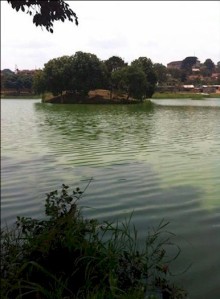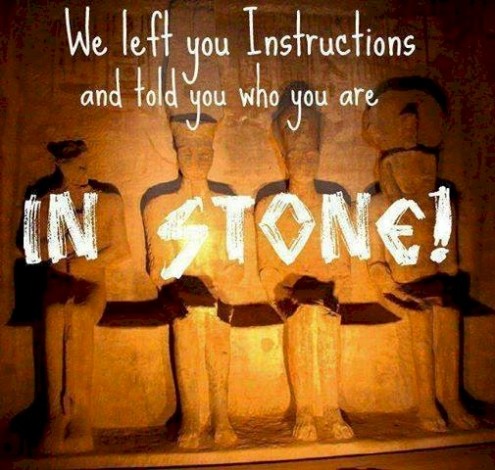The Five Major African Initiation Rites
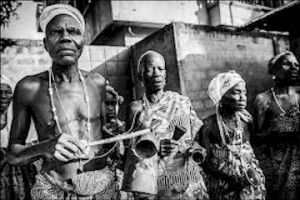
There are five major African initiation rites which are fundamental to human growth and development. These rites were originally established by African ancestors while they were living in order to link the individual to the community and the community to the broader and more potent spiritual world. Initiation rites are a natural and necessary part of a community, as are arms and legs natural and necessary extension of the human body. These rites are critical to individual and community development, and it should not to be taken for granted that people automatically grow and develop into responsible, community-oriented adults.
The process of initiation concerns undergoing a fundamental set of rites to start a new phase or beginning in life. It marks the passing from one phase in life to the next more mature phase. Initiation fundamentally has to do with transformation, and has been a central component of traditional African cultures since time immemorial. The details of the rites vary among the different societies, but these rites are nevertheless basic components of the society as they help guide the person from one stage in life into the next stage of one’s life and development, that is, from birth to death and beyond.
The five rites are birth, adulthood, marriage, eldership, and ancestorship. A rite is a fundamental act (or set of rituals) performed according to prescribed social rules and customs. Each of these rites are a key component that are a part of traditional African cultures. Some societies have more elaborate and extensive ceremonies than others, but these five themes are the thread that links families and villages in traditional Africa and provide the necessary structure for individual growth and development. The 5 rites briefly described below represent an integrated initiation system that has given indigenous African cultures the stability and longevity to provide a model of consistency and inter-generational unity. They represent a complete set of devices that prevent the inherent conflicts between various age groups or the systematic ill treatment of women, children, or elders. These problems are commonplace in western cultures, but they are virtually unknown in indigenous African cultures. These African cultures were not “perfect” as all human societies have problems, but they do provide a viable example in the modern world of how to solve social conflicts and contradictions and give individual the societal support to discover and fulfill their life mission and unique contribution.
RITE OF BIRTH
The Rite of Birth is the first of the major African initiation rites and it involves initiating the infant into the world through a ritual and naming ceremony. Nearly all African cultures hold that the infant has come from the spirit world with important information from that world, and is bringing unique talents and gifts to offer to the community. The infant, in fact, is believed to have been commissioned to come to the world and accomplish a particular mission or project, and often has a great message to deliver.
Therefore, it is the responsibility of the family and community to discover the infant’s unique mission through consultations with a diviner and to have rituals and a birth chart done. This is done to clearly determine the new community member’s mission in order to guide him/her through their life path. The infant’s name is given after the determination of the mission and it is a reflection of the infant’s personality or the life mission itself.
RITE OF ADULTHOOD
The Rite of Adulthood is the second major initiation rite and it is nowadays the most popular among the set of rites. Most people today assume that “rites of passage” only refers to initiation into adulthood, and they are often not aware that adulthood rites are only one set of rites within a larger system of rites. Adulthood rites are usually done at the onset puberty age (around 12-13 years of age in many cultures) and they are to ensure the shaping of productive, community-oriented responsible adults. There is nothing automatic about youth being productive members of society, nor is there anything particularly difficult about transitioning from a child to an adult. This transition to adulthood is exceedingly difficult in Western societies because there are no systems of adulthood rites to systematically guide and direct the young person through this important stage in his or her life cycle.
In Western culture adulthood is seen as a status achieved at the age of 18 or 21, or simply when the person graduates from high school. Unfortunately, in most cases there is no fundamental guidance or transformation from a child to an adult that is required or expected. This “leave it for chance” approach to adulthood development is the root of most teenage and youth “adult” confusion, chaos, and uncertainty. When the youth reach a certain age, somehow they are expected to magically transformed into an “adult,” eventhough they often receive very little guidance.
On the other hand, African societies systematically initiate boys and girls. They often take the young initiates out of the community, and away from the concerns of everyday life, to teach them all the ways of adulthood: including the rules and taboos of the society; moral instruction and social responsibility; and further clarification of his/her mission or calling in life.
RITE OF MARRIAGE
The Rite of Marriage is the third major initiation rite and it represents not only the joining of two families, but also the joining of the two missions of the new couple. In other words, the marriage rites are performed for not only the coming together of male and females to procreate and perpetuate life and the coming together of families, it is also an institution that helps both the husband and wife to best fulfill their mission and objectives in life. Unfortunately, in Western society a vast number of marriages fail as they are often based upon the couple “falling in love” and thereby entering the relationship in an unbalanced state. Individual often “fall in love” quick and “fall out of love” just as quickly, as soon as they recover from the emotional “love at first site” syndrome. African society, on the other hand, does not emphasize individual looks and lust as the primary motivation for marriage, but rather the basic focus is on building families and communities. The focus is on the collective more than the individual. A person is not generally considered an adult until they have married and had children.
RITE OF ELDERSHIP
The Rite of Eldership is the fourth major initiation rite and it is an important component of the initiation system, because it is the elders who represent tradition and the wisdom of the past. In African culture, there is a fundamental distinction that has to be made between an “elder” and “older” person. An older person has simply lived a longer life than most of people, but it not considered one who deserves high praise and respect. This is because the older person’s life has not been a positive example for the community. An older person could be a thief or drunkard, an evil person, or could be someone who never married and had children, and thus these examples would certainly prevent a person from being considered a respected elder.
An elder, on the other hand, is someone who is given the highest status in African culture because s(he) has lived a life of purpose, and there is nothing more respected than living a purposeful life. The life of an elder is centered in the best tradition of the community, and is someone who has gone through all of the previous three rites, and is a living model for the other groups in the society to emulate. An elder is given the highest status and along with new infants because these two groups represent the closest links to the wisdom of the spirit world.
RITE OF ANCESTORSHIP
The last of the five major rites is the Rite of Ancestorship, which concerns passing over into the spirit world. This final initiation rite is an extension of the elder/older distinction because the status that a person has in life is the same status that they bring with them when they pass on. There is virtually no African society that believes that when a person dies this ends all ties and communication with the living. Rather, African philosophy from one culture to another agrees that the spirit of the deceased is still with the living community, and that a distinction must be made in the status of the various spirits, as there are distinctions made in the status of the living.
One of the most important distinctions is the difference between an older person who dies and who is seen as nothing more than a “dead relative,” and a respected elder who passes on and is revered as an honored “ancestor.” The dead relative dies without honor and is someone who is not remembered as a great person or someone who should be followed or emulated. On the other hand, a respected elder who passes on becomes a respected ancestor and is given the highest honor. This group of ancestor wield great power and are often called upon in matters of trouble or uncertainty to help influence a favorable outcome. Thus, ancestors are respected elders who have passed away and who continue to serve as an extension of the family and community.
PRACTICAL APPLICATION
The above general outline of the African initiation rites is a summary of the complete system of rites that have enormous implications for Black communities in various parts of the diaspora. These communities are struggling to find solid and lasting solutions to long standing problems, resulting from centuries of slavery and colonialism. The solution to these deep-rooted problems is to learn and apply the fundamental philosophies and principles that have created harmonious traditional African societies.
The five major initiation rites can be implemented in any Black community that seeks to find solutions to the problem of a large number of people in the community who lack direction and purpose, and who lack a commitment to build and develop the community. The fact is that in order to produce a society that is focused on the best interest of the community requires a broad-based system that is designed to produce community-oriented responsible adults.
A few practical suggestions include the following:
Rite of Birth: a birth chart should be made for each infant or young person in each family. This is necessary in order to determine their personality, talents, and gifts. If this chart is done before the new baby is given a name, then the name will always remind the person of what their mission is in life whenever his/her name is called. When a person’s name reflects their life’s purpose then this is a powerful tool to help keep the person focused on their life’s work.
Rite of Adulthood: the adulthood rites have to be seen in a larger context. Most programs are well meaning but the problem is often that the mentors of the numerous adulthood “rites of passage” programs have not been initiated themselves. It is obvious that one cannot teach what one has not been taught. The African proverb is that “one who learns, teaches.” The solution to this contradiction is for there to be more focus on programs or organizations for men and women to deal with their own issues of a lack of self-development and lack of a purposeful life, so that they could be better examples for the youth. In other words, the principles that are taught must be applied to the lives of the mentors and adults, otherwise the programs have no credibility or long term effectiveness.
Rite of Marriage: the solution to the epidemic of serial marriages – where many individual marry and divorce multiples times during the course of their life – is to change the approach from off-balanced individuals “falling in love” to the more balanced and stable approach of culturally-centered families forming a mutual bond. The problem for many Black people is that they often adopt anti-social Western ideas and thus see in-laws as their opponents. If more marriages were formed between individuals that have both been through the birth and adulthood rites, then more unions would work because both individuals would have a clear focus in life and would also know how to best support the other partner’s mission. They would be marrying the person and their mission.
Rite of Eldership: every Black community should establish a council of elders to help guide that particular community. There are a number of examples of African societies govern by elders (gerontocracy) because of their collective and accumulative wisdom. This is an important philosophy that should be adopted because a council of elders could be consulted in a variety of matters, ranging from family or marriage disputes, community-wide issues, naming of buildings and community centers, and directing resources to supporting important projects. The guidelines of choosing the council members should be clearly established and members chosen by vote. Without a council of elders most Black communities will remain disorganized and lacking direction and effective leadership.
Rite of Ancestorship: every Black community that establishes a governing council of elders should also chose a group of local and national ancestors whose life represented a purpose focused on helping (in some way) to build and develop the community. This local group of honorable ancestors should be chosen to be remembered because of their great example and contributions, and thus their life should be honored. Too often when ancestors are remembered during community ceremonies a distinction is not made between respected ancestors and dead relatives, or another problem is that many times famous ancestors are remembered but local ancestors are overlooked during these ceremonies. Every healthy community must have local (s)heroes.
Professor Manu Ampim
September 2003

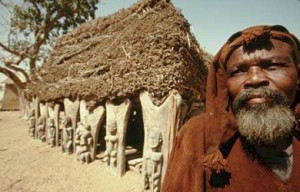


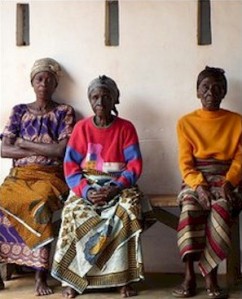
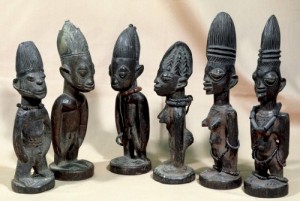
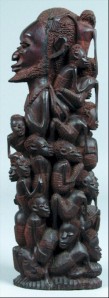
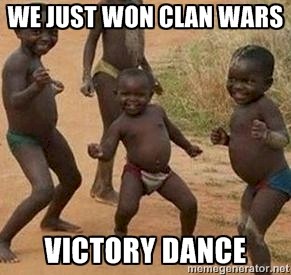
 To become an elder one must pass through all rites of passage from birth to old age. Among the Agìkùyù of Kenya an elder (Muthuri) should have the wisdom to distinguish right from wrong. He should be mature, able to discern, reflect, choose, reason, and think critically. Moral qualities are an important criterion in an individual’s initiation into elderhood.
To become an elder one must pass through all rites of passage from birth to old age. Among the Agìkùyù of Kenya an elder (Muthuri) should have the wisdom to distinguish right from wrong. He should be mature, able to discern, reflect, choose, reason, and think critically. Moral qualities are an important criterion in an individual’s initiation into elderhood. Elders make sure that community customs and practices that foster harmony, order, and peace are passed on to new generations. They are the teachers during initiation ceremonies where they teach young initiates moral values such as peace and justice, humility, gentleness, truthfulness, cooperation, and unity. They also teach their family members how to keep peace and harmony among themselves.
Elders make sure that community customs and practices that foster harmony, order, and peace are passed on to new generations. They are the teachers during initiation ceremonies where they teach young initiates moral values such as peace and justice, humility, gentleness, truthfulness, cooperation, and unity. They also teach their family members how to keep peace and harmony among themselves. The first people to arrive usually wait and discuss general issues until most of the invited are present. To mark the beginning of the meeting an elder stands and says the opening prayers. It is interesting to note that during the meeting itself only one man can be standing at a time.
The first people to arrive usually wait and discuss general issues until most of the invited are present. To mark the beginning of the meeting an elder stands and says the opening prayers. It is interesting to note that during the meeting itself only one man can be standing at a time.